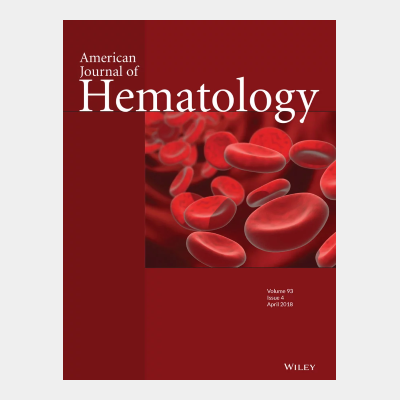Ataluren-driven restoration of Shwachman-Bodian-Diamond syndrome protein function in Shwachman-Diamond syndrome bone marrow cells
 Shwachman-Diamond syndrome (SDS) is a rare inherited recessive disease mainly caused by mutations in the Shwachman-Bodian-Diamond syndrome (SBDS) gene, which encodes for the homonymous protein SBDS, whose function still remains to be fully established. SDS affects several organs causing bone marrow failure, exocrine pancreatic insufficiency, skeletal malformations, and cognitive disorders.
Shwachman-Diamond syndrome (SDS) is a rare inherited recessive disease mainly caused by mutations in the Shwachman-Bodian-Diamond syndrome (SBDS) gene, which encodes for the homonymous protein SBDS, whose function still remains to be fully established. SDS affects several organs causing bone marrow failure, exocrine pancreatic insufficiency, skeletal malformations, and cognitive disorders.
About 15% of SDS patients develop myelodysplastic syndrome (MDS) and are at higher risk of developing acute myeloid leukemia (AML). Deficiency in SBDS expression has been associated with increased apoptosis and lack of myeloid differentiation in bone marrow hematopoietic progenitors. Importantly, most SDS patients carry nonsense mutations in SBDS.
Since ataluren is a well-characterized small molecule inhibitor that can suppress nonsense mutations, here, we have assessed the efficacy of this drug in restoring SBDS expression in hematopoietic cells obtained from a cohort of SDS patients. Remarkably, we show that ataluren treatment readily restores SBDS protein expression in different cell types, particularly bone marrow stem cells.
Furthermore, ataluren promotes myeloid differentiation in hematopoietic progenitors, reduces apoptotic rate in primary PBMCs, and brings mammalian target of rapamycin phosphorylation levels back to normal in both lymphoblasts and bone marrow mesenchymal stromal cells (BM-MSCs). Since a specific therapy against SDS is currently lacking, these results provide the rationale for ataluren repurposing clinical trials.
Am J Hematol, Volume93, Issue4, April 2018, Pages 527-536
Bezzerri V, Bardelli D, Morini J, Vella A, Cesaro S, Sorio C1, Biondi A, Danesino C, Farruggia P, Assael BM, D’amico G, Cipolli M
